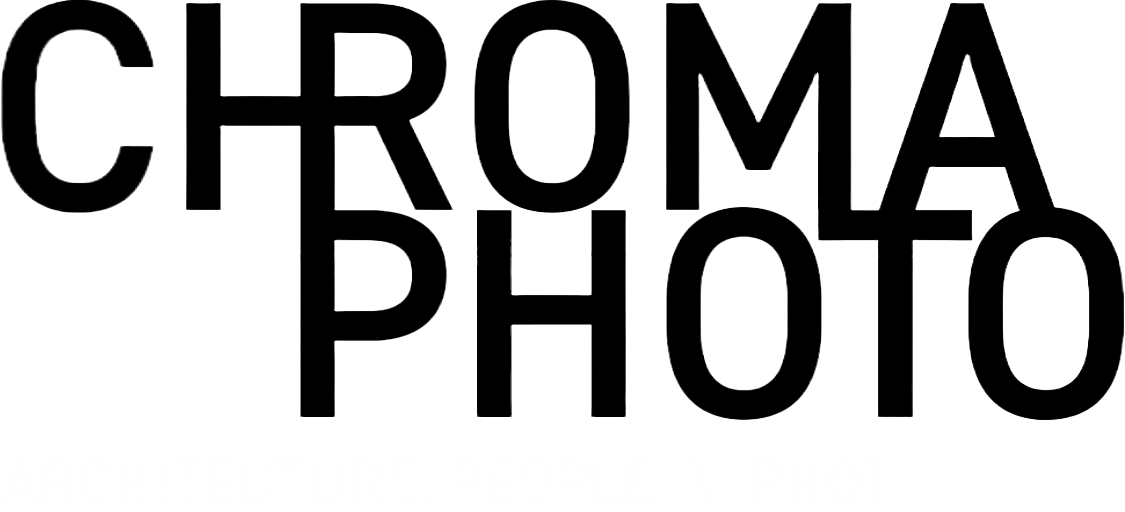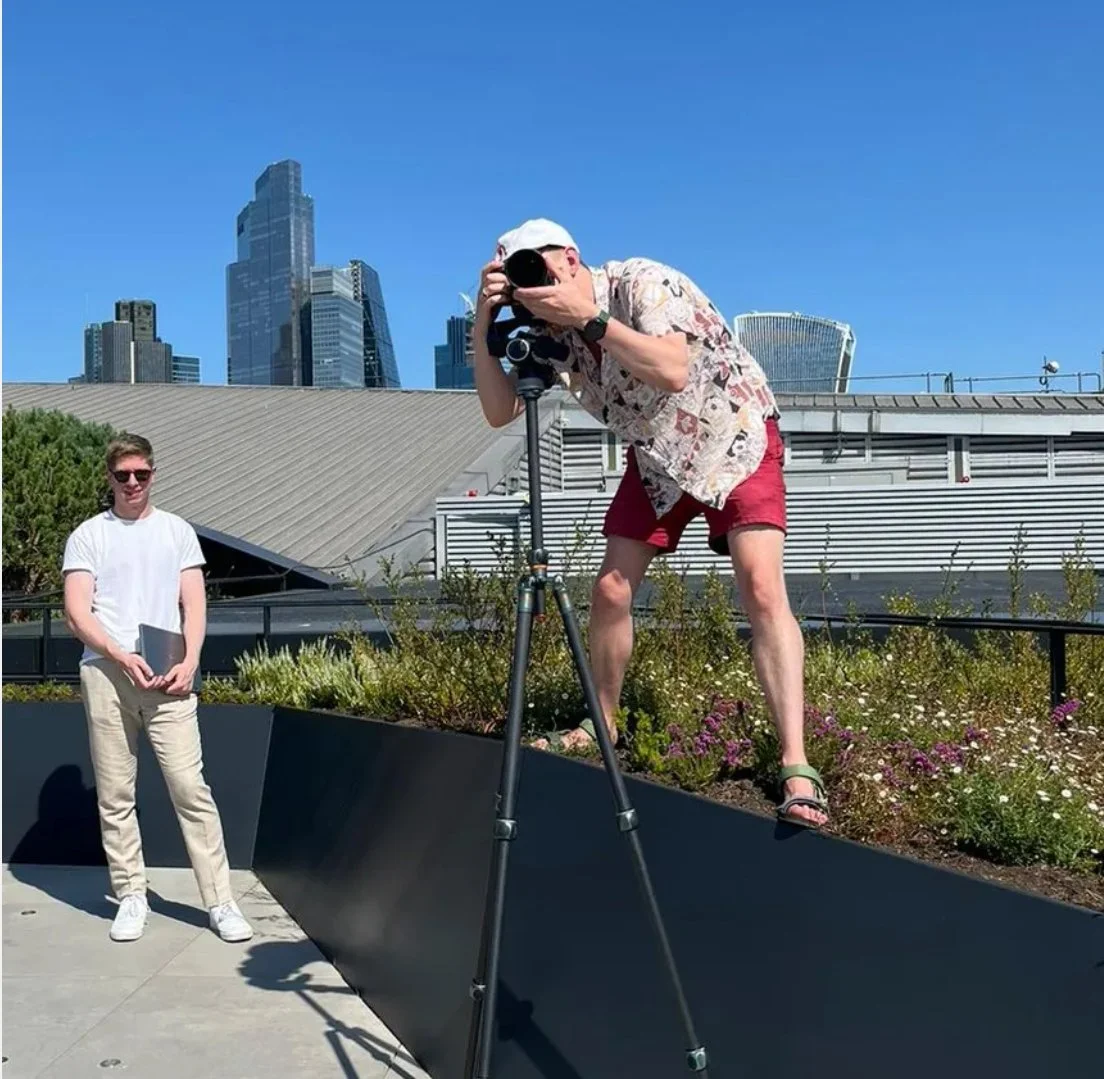How Much Does Architectural Photography (and Video) Cost?
Understandably, money is one aspect Architects pay attention to when hiring a photographer. It’s fortunately not something that often dictates whether someone hires one, as it’s not the most important factor. Quality, communication, ‘eye’, adaptability, reliability are also key factors, but this post is about ££££.
The boring answer is ‘it depends’. And it very much does.
Different photographers charge in different ways, and I’ve experimented with different structures myself since starting out. It also depends on where the photographer is, how experienced they are, and what the output is you’re looking for; prices can vary depending if you’d like five images, or fifty. As far as location, North American photographers for example charge around £1500 for a shoot day, plus edits and licensing. Sadly for UK photographers, and luckily for UK architects, this isn’t the case here, or much of Europe. Let’s go for a quick dive into pricing……
Behind the curtain.
What determines costs?
Running costs? (A little)
As in Architecture, there are administrative fees and costs with running a business. Software costs are ongoing, and all kit combined for me so far has probably cost £15,000 (with around 2/3 of that being on the actual photographic equipment).
So the ≈£7000+ per year running cost is obviously a factor, but spending money and having snazzy kit doesn’t make you worth money:
Perceived Market Value
London houses thousands of photographers of all styles, subjects and abilities. But at a guess I’d estimate it only has a few hundred architectural photographers (discounting estate agent photographers, which is a topic for another time). So the supply and demand of these, probably measured at the busiest times of year, such as early Summer determines the average rates.
Client Needs
As previously mentioned, what clients want to use photos for can have a bearing on how much I charge. Some shoots have been for construction progress, parties, mock-ups, AGM’s, events, or site progress photos. The output from these may be much less important than from a finished building shoot, and also require significantly less work on my part. So I structure my fees to reflect this time saved. My rates makeup is to allow a bespoke pricing so clients aren’t tied into any one thing. If you want a full day shoot to get the perfect photos, but only want 4 photos, that’s OK. Equally, if we do a half day, and manage to get 25 photos, that’s fine too.
Video
Video is slightly more of a moving target, and can depend on shoot time, again, output, and how many rounds of feedback, and how much complexity. As an example, my dMFK video, and Bloom video each took half a day to shoot, and came in around £1200. This is with the client picking which sections of dialogue are the most important, one round of editing, feedback, then a mini feedback round before the final video. I am always happy to take on more decisions, though of course this may mean more feedback rounds, and a higher fee.
Perceived Value of the Photographer!
Now here’s an interesting and personal one. How much do I think I’m worth?
I do sometimes look at photos from renowned photographers, and think I could produce similar, given the time and opportunity. I equally marvel at others and aspire to have some of the qualities in my own works, be that how to use people in photos, capture the mood of spaces, use light, or frame elements. I know I'm a better photographer than I was an Architect, but also that I've got a lot to learn, and love that process; that's what keeps you interested in a subject and job.
I came into the industry from being an Architect. As you probably know if you’re reading this, Architects are notoriously undervalued and underpaid. So I was wary of this as a factor architects themselves contribute to by doing cheap and free work in hope of winning work. Partly for this reason, I’ve made an effort to place a value on my own time. This is on average £50/hr, which is comparable to architects fees (if they charged for time rather than projects/stages).
Since starting, I've learnt a lot, worked on a lot of cool projects and with teams, had lots of great feedback, and faced even more rejection, or just silence from practices, which is never a fun one. Clients are also often really happy with work even when I'm not entirely satisfied. Which is the best way round, because it keeps me striving, self critical, but also content that I'm doing a good job. Keeping up with others in the industry and interested in both photography and architecture worlds keep me relevant, and growing (I hope!).
I think that my experience as an Architect has contributed to my understanding and aesthetics as a photographer, and also having some of the lingo down helps. Being able to hone in on what I think a practice may be most proud of, or worked hardest to detail lets me work with them, while also picking up on things they may not have considered as an interesting element. I work best on shoots where there’s some guidance, but also room, and time to explore some creativity on the project, and have space for incidental photo opportunities and moments to appear. These often make up the most interesting and engaging photos.
There are also one or two practices that I’ve been eager to work with, who often pick photographers who are below market value. Like with architecture, this is damaging to the profession and isn’t good practice. So I've tried to not engage in race-to-the-bottom pricing, and encourage anyone in their industry from doing so!
Some Actual Figures
I split my rates up, so charge a half day and day rate, and a per-photo editing and licensing cost, which covers all use by that company/practice, in perpetuity. In 2024, these have been half £450, full £650, and £25/photo. These may need to rise with inflation in 2025, as I didn’t in 2024.
For me, an average half day shoot with photos, this is usually somewhere from £700-1200.
For an average full day shoot with photos, this this is usually somewhere from £900-2000. It should be noted that some jobs that include bits of video, or up to 60 photos, and multiple licences might come to £3000 or more.
Splitting licences with another practice or contractor is a good way to cut costs, and control the images released to the public. Many photographers add 30% onto total costs per extra party, which can rapidly reduce split costs.
Recce’s are sometimes requested, which let us chat through what’s to cover, how best to approach, desired outcomes, appropriate running order to best capture light, and let me get a feel for the spaces and complexity.
Drones might be wanted on a job, which potentially means research and gaining permissions from the CAA, councils, police, and any other parties, for which a small fee may be charged.
A rush turnaround is occasionally requested for some projects, for which a small fee is added, to cover any overtime, working weekends, etc. I value my own time, as practices value their employees’ time.
Travel can also be a factor; the cost of actual transport is charged outside London, and depending on just how far away, and the project, some photographers charge extra for travel time.
Assistants are sometimes used on shoots, though I haven’t had the opportunity or need to use them often. This is more needed on very complex or high end shoots, or events where one person would struggle to cover, such as the London Construction Awards.
In addition to the things outlined above, I strive to provide a professional, comprehensive, reliable, friendly and punctual experience, and make it easy to work with me. My Google reviews, and repeat client base are testament to this.
My fees are generally fixed, but I’ve made allowances in the past for student work, publications, and also offered free services for charities, such as Being the Cure.
If you’re interested in hearing more, or having a free phone consultation, please get in touch on my contacts form on my website, here.

